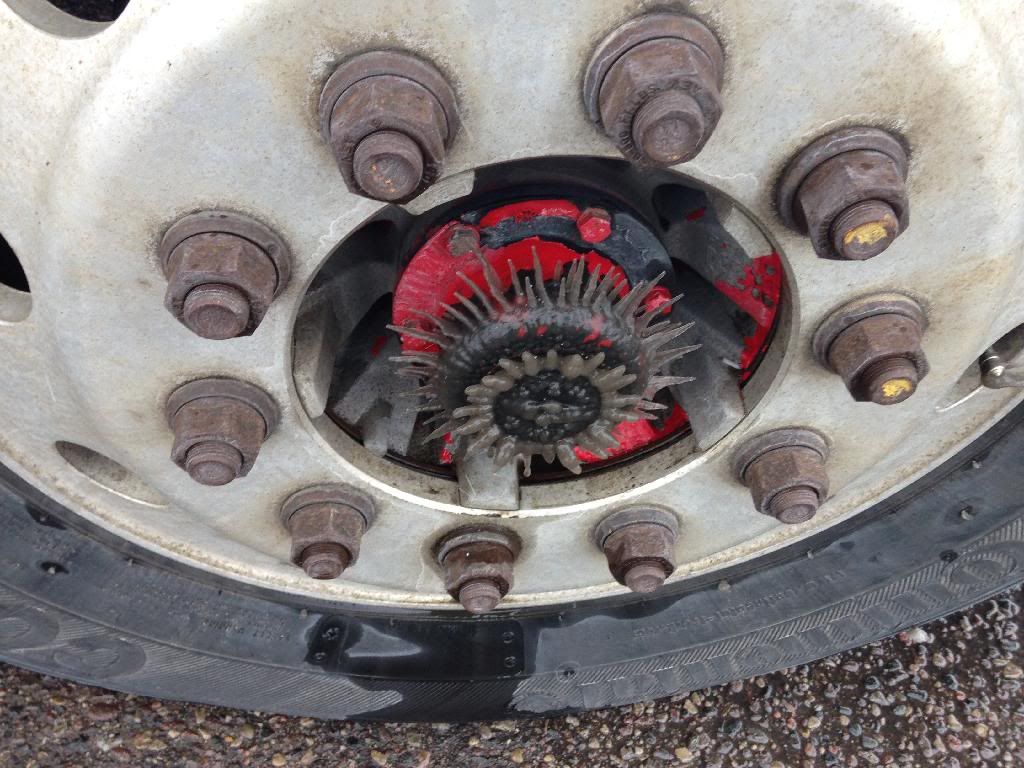Advantage Of Driving Refer Over Dry Goods?
Topic 2904 | Page 1

Reefers tend to get long milage hauls but you have to "babysit" them. Dry van you may get more shorter runs. Some of the experienced guys here can tell you more. This is an article somewhere on this site that explains the differences between them. I am sure Brett will post it.
Dry Van:
A trailer or truck that that requires no special attention, such as refrigeration, that hauls regular palletted, boxed, or floor-loaded freight. The most common type of trailer in trucking.Reefer:
A refrigerated trailer.
Welcome aboard Nick!
Yap, we have a whole series of articles on How To Choose A Truck Driving Job including an 8 part series I wrote on it. You'll find all of the articles in that link. It compares life at different size companies and pulling different types of freight. It will also give you a lot of information on what to look for and how to find the information you need to make the right choices.
But basically the main differences are:
1) The average length of each run is longer with refrigerated runs than with dry van but that doesn't mean you'll necessarily get more miles overall. It means a typical week for a dry van carrier might entail 4 runs with an average haul of 750 miles and a refrigerated carrier might have two runs with an average of 1500 miles. It certainly doesn't always work that way. But generally speaking that's what you'll find. The overall mileage you get should be pretty close to the same with both types of freight.
2) Refrigerated carriers usually do live loads and unloads where dry van tends to do more drop and hook. So refrigerated haulers tend to spend a whole lot more time sitting at the docks for hours and hours on end. On top of that, refrigerated appointment times are more often in the middle of the night than dry van times so the hours are a little more erratic, but not significantly so.
3) Refrigerated freight is more consistent throughout the year because you're hauling a lot of food products where dry van freight has greater seasonal fluctuations, especially around the Holidays.
4) Refrigerated carriers tend to do more coast to coast runs and run all 48 states. Dry van carriers tend to do more regionalized runs and often times you'll only run parts of the country. This of course varies quite a bit from company to company and division to division.
5) Finally, refrigerated carriers usually expect you to stay out at least 2-4 weeks at a time where a lot of dry van carriers have options for getting home more often, like on weekends. Rarely do refrigerated carriers have regional fleets that can get you home on weekends.
Overall the money won't vary as much from refrigerated to dry van carriers as it will from company to company. In other words, you won't necessarily make more money hauling one type of freight or the other. You can do equally well with both. The amount of money you ultimately make will depend more on things like mileage pay, average weekly mileage, your relationship with your dispatcher , the division you're in, and company-specific things.
Regional:
Regional Route
Usually refers to a driver hauling freight within one particular region of the country. You might be in the "Southeast Regional Division" or "Midwest Regional". Regional route drivers often get home on the weekends which is one of the main appeals for this type of route.
Dispatcher:
Dispatcher, Fleet Manager, Driver Manager
The primary person a driver communicates with at his/her company. A dispatcher can play many roles, depending on the company's structure. Dispatchers may assign freight, file requests for home time, relay messages between the driver and management, inform customer service of any delays, change appointment times, and report information to the load planners.Dry Van:
A trailer or truck that that requires no special attention, such as refrigeration, that hauls regular palletted, boxed, or floor-loaded freight. The most common type of trailer in trucking.Drop And Hook:
Drop and hook means the driver will drop one trailer and hook to another one.
In order to speed up the pickup and delivery process a driver may be instructed to drop their empty trailer and hook to one that is already loaded, or drop their loaded trailer and hook to one that is already empty. That way the driver will not have to wait for a trailer to be loaded or unloaded.
OOS:
When a violation by either a driver or company is confirmed, an out-of-service order removes either the driver or the vehicle from the roadway until the violation is corrected.

I think it varies a lot with the company too. I run dry van (I hate reefers for two reasons....food service shippers and receivers attitudes and listening to the reefer run all the time).
I get a a lot of miles, and good loads. I'm all over the U.S. ... we don't stick to a region, so 1500-2500 mile loads are not uncommon, although I do get shorter ones mixed in.
Shipper:
The customer who is shipping the freight. This is where the driver will pick up a load and then deliver it to the receiver or consignee.
Dry Van:
A trailer or truck that that requires no special attention, such as refrigeration, that hauls regular palletted, boxed, or floor-loaded freight. The most common type of trailer in trucking.Reefer:
A refrigerated trailer.
New Reply:
New! Check out our help videos for a better understanding of our forum features

















Preview:
This topic has the following tags:
Choosing A Trucking Company







 TT On Facebook
TT On Facebook
Just starting School. Wanted some perspective on jobs driving referigerated vs dry goods otr. I see both types of jobs as available. Pay seems to be about the same. Thanks for your time!
OTR:
Over The Road
OTR driving normally means you'll be hauling freight to various customers throughout your company's hauling region. It often entails being gone from home for two to three weeks at a time.